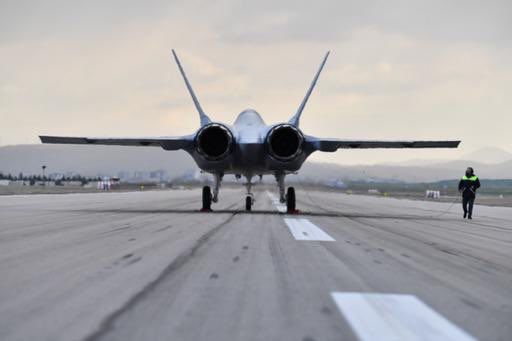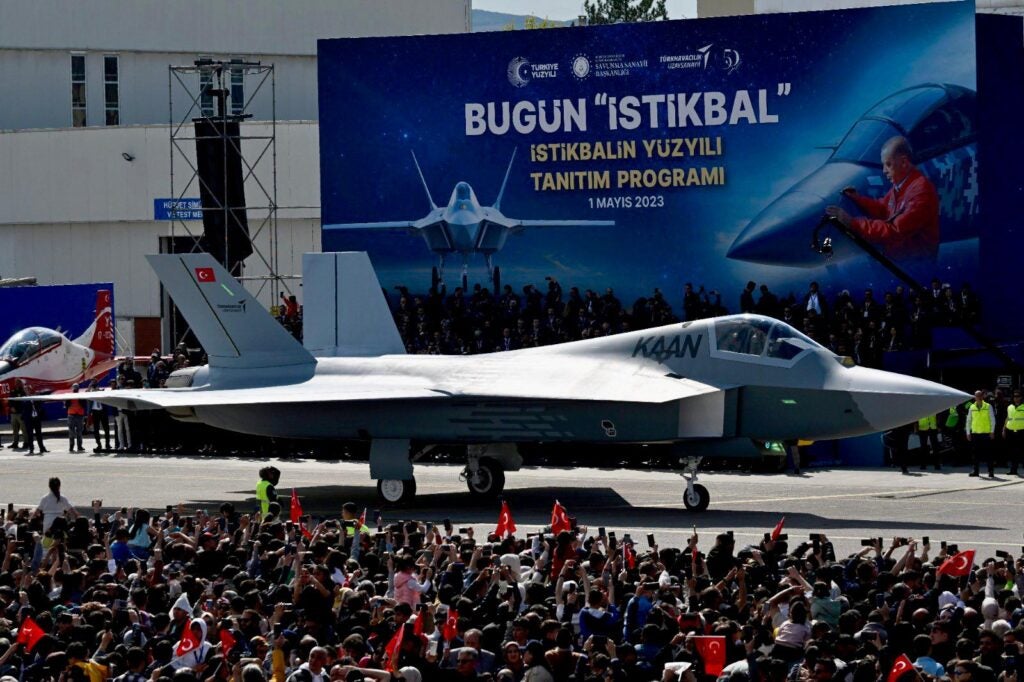Ukraine Shows Interest in Turkey’s Fifth Generation KAAN Fighter Aircraft
Ukraine’s Ambassador to Ankara, Vasyl Bodnar, stated in an exclusive interview with CNN Turk, on 15 February, that Ukraine is interested in purchasing Turkey’s KAAN fighter jet, which is currently under development. Ambassador Bodnar said in his statement, “We will not only purchase KAAN in the future. We’ll also use it. We also know where we will use it.”
Bodnar stated that this is not a new concept, and that Ukraine had close cooperation with Turkey in strategic sectors such as defense prior to the war. Noting that a consortium of Ukrainian companies is competing with other international manufacturers for the KAAN National Combat Aircraft (MMU) engine, the Ambassador stated that Ukraine has the experience and a good partner label to quickly produce the aircraft’s critical equipment.
Bodnar also believes that KAAN has the potential to compete with the F-35 and F-22, saying, “This is the story of the future. If we can make this a success story and avoid the influence of third parties in both the east and the west, we will be one of the strongest in the region.”
KAAN, also known as Turkish Fighter X (TF-X), is a fifth-generation fighter aircraft project developed by Turkish Aerospace Industries (TAI) for the Turkish Air Force and coordinated by the Turkish Defense Industry Agency (SSB). The program’s design activities began in 2016, with a full-scale model of the aircraft debuting on the podium at the 2019 Paris Air Show. The first component of the TAI KAAN aircraft was built in 2021 and the aircraft was transferred to the final assembly line in 2022. In 2023, the KAAN aircraft prototype completed ejection seat, static tests, control surface tests, avionics system tests, engine starting tests, ground tests and taxi tests. Following these tests, the KAAN prototype’s first flight was scheduled for late December 2023 or early January 2024, but this date was later pushed back to March 2024.
In its first flight, the KAAN fighter jet will be powered by General Electric F110 engines, the same type used by F-16s. However, the engine that will power the aircraft’s final production version has yet to be determined. Although Turkey is still developing domestic engines to power KAAN as part of the Original Engine Development Project, this technology will take time to mature. As a result, Turkey is in discussions with American, British, and Ukrainian companies about joint production of aircraft engines.

Among all the options, Turkey is highly likely to collaborate with Ukraine on the engine for the KAAN fighter jet. One of the reasons for this is Turkey’s close cooperation with Ukrainian engine manufacturers on key defense industry projects. For example, Turkish Aerospace Industries’ prototype of the T929 ATAK 2 twin-engine heavy attack helicopter employs two TV3-117VMA-SBM1V-01T turboshaft engines manufactured by Ukrainian Motor Sich. Similarly, TAI’s prototype ANKA-3 delta wing unmanned aircraft system is powered by the AI-322 turbofan engine from the Ukrainian Ivchenko-Progress company. Apart from TAI, Baykar also uses AI-25TLT and AI-322F turbofan engines from Ivchenko-Progress for its Bayraktar Akıncı unmanned aerial vehicle and Kızılelma unmanned combat aircraft.

Ukraine may purchase KAAN aircraft in the future or participate in the development program, in addition to producing engines for these aircraft. As is well known, Turkey is looking for foreign partners to help with the financial burden of the Kaan program and to assist with certain technologies. In this context, Azerbaijan was the first country to decide to participate in the National Combat Aircraft Program, and a cooperation agreement was signed at the IDEF fair in Istanbul in August of last year. According to Turkish Deputy Minister of Defense Celal Sami Tüfekçi, Pakistan will also officially join the program soon.

